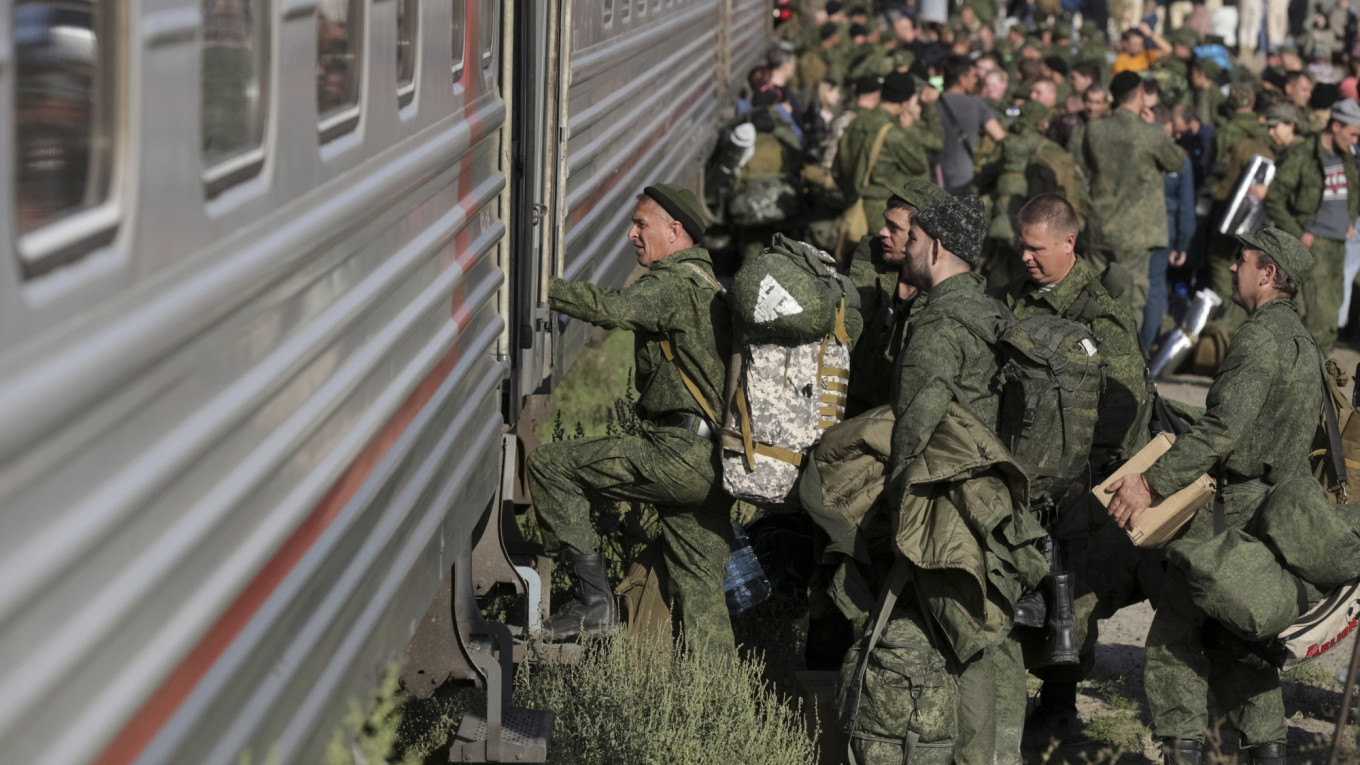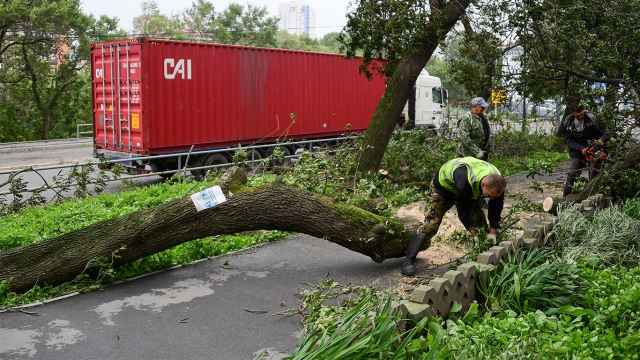Around half of those recruited into the Russian military from Far Eastern Russia's Khabarovsk region had been sent home due to wrongful mobilization, the region's governor said Monday.
Russia’s first draft since World War II has sparked protests and criticism, even among Kremlin loyalists, for the chaotic mobilization process. Several regional leaders have reported taking measures to improve their regions' draft efforts after President Vladimir Putin last week acknowledged “mistakes” in carrying out his “partial” mobilization orders.
In the Khabarovsk region 8,500 kilometers east of Moscow, Governor Mikhail Degtyaryov said he has dismissed the local chief enlistment officer for excesses at the draft board.
"Out of several thousand of our compatriots who had received a summons and arrived at military enlistment offices in the past 10 days, around half have returned home for failing to meet the selection criteria," he said.
The governor did not specify how many Khabarovsk region residents have been mobilized, but the 50% figure is believed to be the highest share of wrongful mobilization cases to be declared in a single region. His colleague in the neighboring republic of Sakha reported Monday that 300 of those wrongfully enlisted have returned home.
Degtyaryov's announcement follows reports of recruiters in the Khabarovsk region signing up men diagnosed with schizophrenia and single fathers with disabled children.
Yury Laiko, the Khabarovsk region's chief enlistment officer, is at least the second senior recruitment officer to be fired over mistakes with the "partial" mobilization.
His counterpart in the Magadan region — another Russian subject in the Far East and one of the country's least-populated regions — was dismissed last week.
A Message from The Moscow Times:
Dear readers,
We are facing unprecedented challenges. Russia's Prosecutor General's Office has designated The Moscow Times as an "undesirable" organization, criminalizing our work and putting our staff at risk of prosecution. This follows our earlier unjust labeling as a "foreign agent."
These actions are direct attempts to silence independent journalism in Russia. The authorities claim our work "discredits the decisions of the Russian leadership." We see things differently: we strive to provide accurate, unbiased reporting on Russia.
We, the journalists of The Moscow Times, refuse to be silenced. But to continue our work, we need your help.
Your support, no matter how small, makes a world of difference. If you can, please support us monthly starting from just $2. It's quick to set up, and every contribution makes a significant impact.
By supporting The Moscow Times, you're defending open, independent journalism in the face of repression. Thank you for standing with us.
Remind me later.






